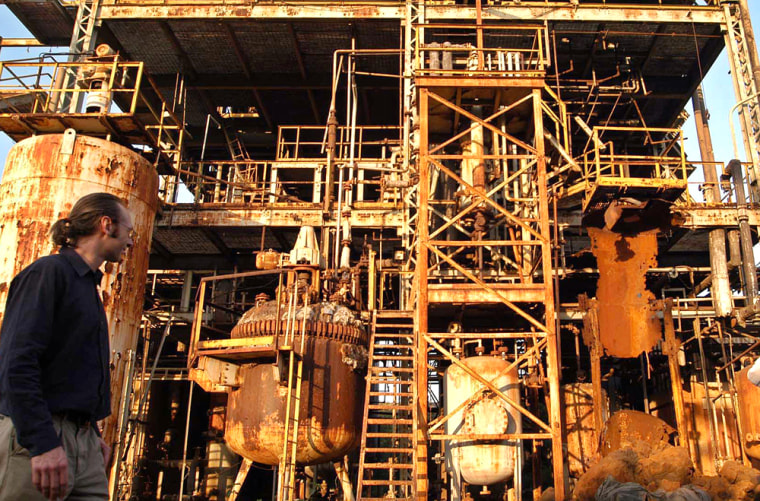An Indian company plans to burn toxic waste from the city of Bhopal, the site of the world's worst industrial disaster, despite environmentalists' objections.
Bharuch Environ Infrastructure Ltd. said Tuesday that burning the waste poses no threat.
"We have the best waste disposal facility and it is child's play for us," said Rajju Shroff, BEIL's chairman.
A 1984 leak of methyl isocyanate gas from a Bhopal pesticide plant run by a subsidiary of the U.S. chemical company Union Carbide killed at least 10,000 people and affected about 550,000 others.
Survivors have since been fighting to get the site cleaned up, but say their efforts were slowed when Union Carbide was taken over by Michigan-based Dow Chemical Co. in 2001, seven years after Union Carbide sold its interest in the Bhopal plant.
Dow has maintained that it is not responsible for cleaning up the site, and the plant is now under the control of India's Madhya Pradesh state, which has agreed to pay BEIL $220,000 to dispose of the waste.
Punjwani said 350 tons of waste will be transported from Bhopal to Ankleshwar, an industrial area in the western state of Gujarat, by July. It then will be burned at high temperatures over the course of a week.
Environmentalists objected to disposing of the waste in Ankleshwar, and said BEIL was not up to the task.
"Frankly, we doubt the ability of the company to be able to dispose of such waste," said Rohit Prajapati, head of the Environment Protection Committee. "Let them take the waste to America and do what they want with it there."
Tens of thousands of survivors have suffered the aftereffects of inhaling the noxious fumes in 1984.
In 1989, Union Carbide paid $470 million in compensation to victims and said responsibility for the cleanup lay with officials.
